 LIPPSO, University of Girona – Spain
LIPPSO, University of Girona – Spain
“From the lead peptide BP100 to bifunctional peptide conjugates to control plant pathogens” (abstract)

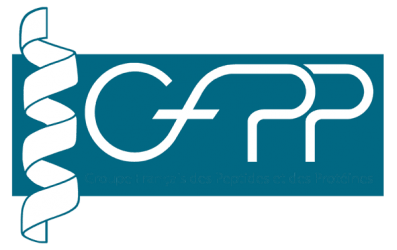
Groupe Français des Peptides et Protéines
French Peptide Society
Chers collègues
Veuillez trouver ci-dessous des informations concernant les journées thématiques/symposia co-organisés par le GFPP et des évènements à venir qui pourraient vous intéresser, ainsi que les bourses allouées par le GFPP et les offres d’emploi récemment postées sur notre site.
| Title | Duration (months) | Contact | City, country | Deadline for submitting (day/month/year) | Job description | |||
| PhD position in academia | Synthesis of bio-inspired lanthano-peptide catalysts | 36 | Dr. Emilie Mathieu | - | Laboratoire de Chimie de Coordination (LCC), UPR CNRS 8241 | Toulouse, France | 30/04/2025 | Download |
| PhD position in academia | Prebiotic polymers towards the origin of Life | 36 | Dr. Colin Bonduelle |  | Laboratoire de Chimie des Polymères Organiques (LCPO), UMR 5629 | Pessac, France | 14/05/2025 | Download |
| PhD position in academia | Peptoid foldamers for asymmetric organocatalysis | 36 | Pr. Claude Taillefumier | - | Institut de Chimie de Clermont-Ferrand (ICCF), UMR CNRS 6296 | Aubière, France | 16/05/2025 | Download |
| Postdoc in academia | Screening on GPCR, SPPS, characterization of peptide-receptor interactions, GPCR pharmacology and functional assays | 24 | Dr. Nicolas Gilles |  | Department of Medicines and Technologies for Health (CEA Saclay) | Saclay, France | 31/05/2025 | Download |
| PhD position in academia | Conformational complexity and biological function of intrinsically disordered proteins | 36 | Pr. Vladimir Torbeev | 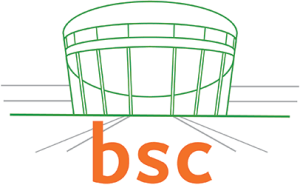 | Biotechnology and Cellular Signalling (BSC) UMR 7242 | Strasbourg, France | 31/05/2025 | Download |
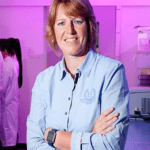 School of Pharmacy, Quenn’s University – UK
“Therapeutic Nucleic Acid Vaccinations: RALA peptide-mediated gene delivery via dissolving microneedles”
School of Pharmacy, Quenn’s University – UK
“Therapeutic Nucleic Acid Vaccinations: RALA peptide-mediated gene delivery via dissolving microneedles”
Prof McCarthy’s research team have focused on the development of non-viral delivery systems for nanomedicine applications in the School of Pharmacy. These biomimetic peptide systems are designed to overcome the extra and intracellular barriers, so that the macromolecular payload can be delivered at the destination site in order to exert the optimal therapeutic effect. Helen has designed and patented three delivery systems. Current research projects involve gene therapy for metastatic deposits; miRNA therapeutics for oncology and wound healing applications; mRNA and DNA vaccination strategies; and regeneration of bone by increasing the bioavailability of ceramics. The wide-spread utility of these delivery systems has led to a spin-out company Phion Therapeutics www.phiontx.co.uk. We currently have two internal projects funded by Innovate UK, several commercial partners, one of which includes Cell and Gene Therapy Catapult for ex vivo applications of our technology.
Website[foogallery id=”4499″]
Montpellier is close to the Mediterranean Sea, in the south-east of the Hérault department, whose territory is defined as an amphitheater open to the sea, bordered by the Cévennes to the north-east and the Haut-Languedoc to the north-west.
[foogallery id=”4344″]
Montpellier is accessible by:
– Plane: Airport Montpellier Méditerrannée
– Train: Station Saint-Roch (in the city center) or Station Montpellier Sud de France (outside of the city)
Thanks to 4 lines of tramway, ample bus services (line 6, 7, 8, 11, 12, 16) taxis, you can go anywhere your heart desires in and around Montpellier. Please note that a three days transportation ticket will be kindly provided in the Conference package. Just pay for the first ride.
The CPP-2020 conference on “Cell-Penetrating peptides: Next generation delivery systems” will be held on April 27-29, 2020, in Montpellier at the Maison des étudiants – Aimé Shoenig – Espace Richter.
The “Maison des étudiants” is in the east of Montpellier near the border of the river “Lez” and is situated at the following address:
Rue Vendémiaire, 34000 Montpellier (Google map)
Access via tramway 1 (Station Rives du Lez) or tramway 3 (Station Port Marianne)
Different hotels and accommodations are available in the near.
Many others hotels of different categories are also available in the city center (near the Place de la Comédie), located only 5 tramway stations (12 min transportation) from the Conference Hall.
Error: Contact form not found.
| Title | Duration (months) | Contact | City, country | Deadline for submitting (day/month/year) | Job description | |||
| PhD position in academia | Synthesis of bio-inspired lanthano-peptide catalysts | 36 | Dr. Emilie Mathieu | - | Laboratoire de Chimie de Coordination (LCC), UPR CNRS 8241 | Toulouse, France | 30/04/2025 | Download |
| PhD position in academia | Prebiotic polymers towards the origin of Life | 36 | Dr. Colin Bonduelle |  | Laboratoire de Chimie des Polymères Organiques (LCPO), UMR 5629 | Pessac, France | 14/05/2025 | Download |
| PhD position in academia | Peptoid foldamers for asymmetric organocatalysis | 36 | Pr. Claude Taillefumier | - | Institut de Chimie de Clermont-Ferrand (ICCF), UMR CNRS 6296 | Aubière, France | 16/05/2025 | Download |
| Postdoc in academia | Screening on GPCR, SPPS, characterization of peptide-receptor interactions, GPCR pharmacology and functional assays | 24 | Dr. Nicolas Gilles |  | Department of Medicines and Technologies for Health (CEA Saclay) | Saclay, France | 31/05/2025 | Download |
| PhD position in academia | Conformational complexity and biological function of intrinsically disordered proteins | 36 | Pr. Vladimir Torbeev |  | Biotechnology and Cellular Signalling (BSC) UMR 7242 | Strasbourg, France | 31/05/2025 | Download |
NEW DEADLINE for submitting an abstract for oral communication:
March 7th, 2020
Deadline for submitting an abstract for poster communication: March 31th, 2020
Please upload your abstract during the registration or send it before the deadline to the organizing comittee.
The number of oral presentations is limited, scientific committee will process a selection and confirm your presentation a.s.a.p.
Please note that we do not print the posters, but racks & pins will be provided for up to A0 sizes, portrait format.
Please download the template for abstract submission.
Regarding the worldwide situation about the COVID-19, we are sorry to announce that the conference “Cell-penetrating peptides: Next generation delivery systems” will be postponed.
The new dates for the conference will be
from Monday 5th to Wednesday 7th October 2020.
Key Dates:
February 29th, 2020: deadline for oral communication submission
March 31th, 2020: deadline for poster submission.
March 31th, 2020: end of registration.
|
Registration types |
Registration Fees |
|
Students / PhDs |
100€ |
|
Academics / PostDocs |
150€ |
|
Private company delegates |
250€ |
Registration fees include:
Orléans is located 110 km north of Paris. There is regular trains from Paris Austerlitz station and from Tours train station (both around 1 h travel), as well as direct shuttles from the two Paris airports (Orly and Roissy-Charles de Gaulles).
 The conference venue is unique. Located right next to the Orléans’ cathedral, the episcopal palace of Orléans, built between 1635 and 1641, locally known as the Hôtel Dupanloup, is a classical French building which served until 1905 of residence to the bishops of Orléans. Since 2014, the renewed palace hosts the International University Center for Research and Le Studium Loire Valley Institute for Advanced Studies.
The conference venue is unique. Located right next to the Orléans’ cathedral, the episcopal palace of Orléans, built between 1635 and 1641, locally known as the Hôtel Dupanloup, is a classical French building which served until 1905 of residence to the bishops of Orléans. Since 2014, the renewed palace hosts the International University Center for Research and Le Studium Loire Valley Institute for Advanced Studies.
Participants will be welcomed in this exceptional surrounding, blending Middle Age and Renaissance cultures with modern design and will have the opportunity to discover French cuisine and wines.
Venue adress: 1, rue Dupanloup – 45000 ORLEANS – FR
Hôtel Dupanloup is 10 min walk from Orléans train station. Alternatively, you can take tram A to De Gaulle station then tram B to Cathédrale-Hôtel de Ville station.
List of recommended hotels in Orléans
Organizing committee:
Scientific committee:
CNRS Center for Molecular Biophysics (CBM), Orléans, France
| Registration types | Registration Fees |
| PhD student | 75 € |
| Academic delegate | 180 € |
| Private company delegate | 250 € |
Deadline for submitting an abstract for oral communication ended on November 18th, 2019, and the oral communication selection process is now over (see the selected oral communications at the bottom of the page).
Deadline for submitting an abstract for poster communication has been postponed to January 17th, 2020
Please upload your abstract during the registration or send it before the deadline to .
Please note that we do not print the posters, but racks & pins will be provided for up to A0 sizes, portrait format.
Download here the template for poster presentation.
List of the oral communications selected from the submitted abstracts:
| Name | Organisation | Country | Abstract title |
| Dr Elisabeth Garanger | University of Bordeaux | France | Expanding the toolbox of chemoselective modifications of protein-like polymers at methionyl residues |
| Dr Gosuke Hayashi | Nagoya University | Japan | Chemical synthesis of histone proteins through novel ligation strategies |
| Dr Samir Messaoudi | Paris-Sud University | France | Synthesis of aryl-thioglycopeptides through chemoselective Pd-mediated conjugation |
| Dr Pierre Milbeo | Trinity College of Dublin | Ireland | Development of Novel Thiol-ene Mediated Peptide Ligation Strategies |
| Dr Elisabetta Mileo | Aix-marseille University | France | Nitroxide-based spin tags coupled to EPR spectroscopy: investigation of protein structural dynamics in vitro and inside cells |
| Dr Laia Miret Casals | Ghent University | Belgium | Furan crosslink technology: from in vitro analysis of peptide-protein interactions to GPCR-ligand interactions on live cells |
| Dr Somnath Mukherjee | University of Vienna | Austria | Impact of site-specific non-enzymatic posttranslational modification on the structure-activity attributes of human Hsp27 |
| Dr Kevin Neumann | ETH Zurich | Switzerland | Cyanosulfurylide as a protecting group for carboxylic acid during peptide synthesis |
| Dr Marina Rubini | University College Dublin | Ireland | Semisynthetic approaches for studying post-translational modifications |
| Mrs Rebecca Schäfer | ETH Zurich | Switzerland | The Bioorthogonal Isonitrile-Chlorooxime Ligation |
| Mr Ruben Tomás | University of Warwick | UK | Controlling Synthetic Polymer Ligation to Metabolically Labelled Cellular Interfaces to Introduce Non-native Functionality. |
| Prof Ping Wang | Shanghai Jiao Tong University | China | Histidine-Specific Peptide Modification via Visible-Light-Promoted C-H Alkylation |
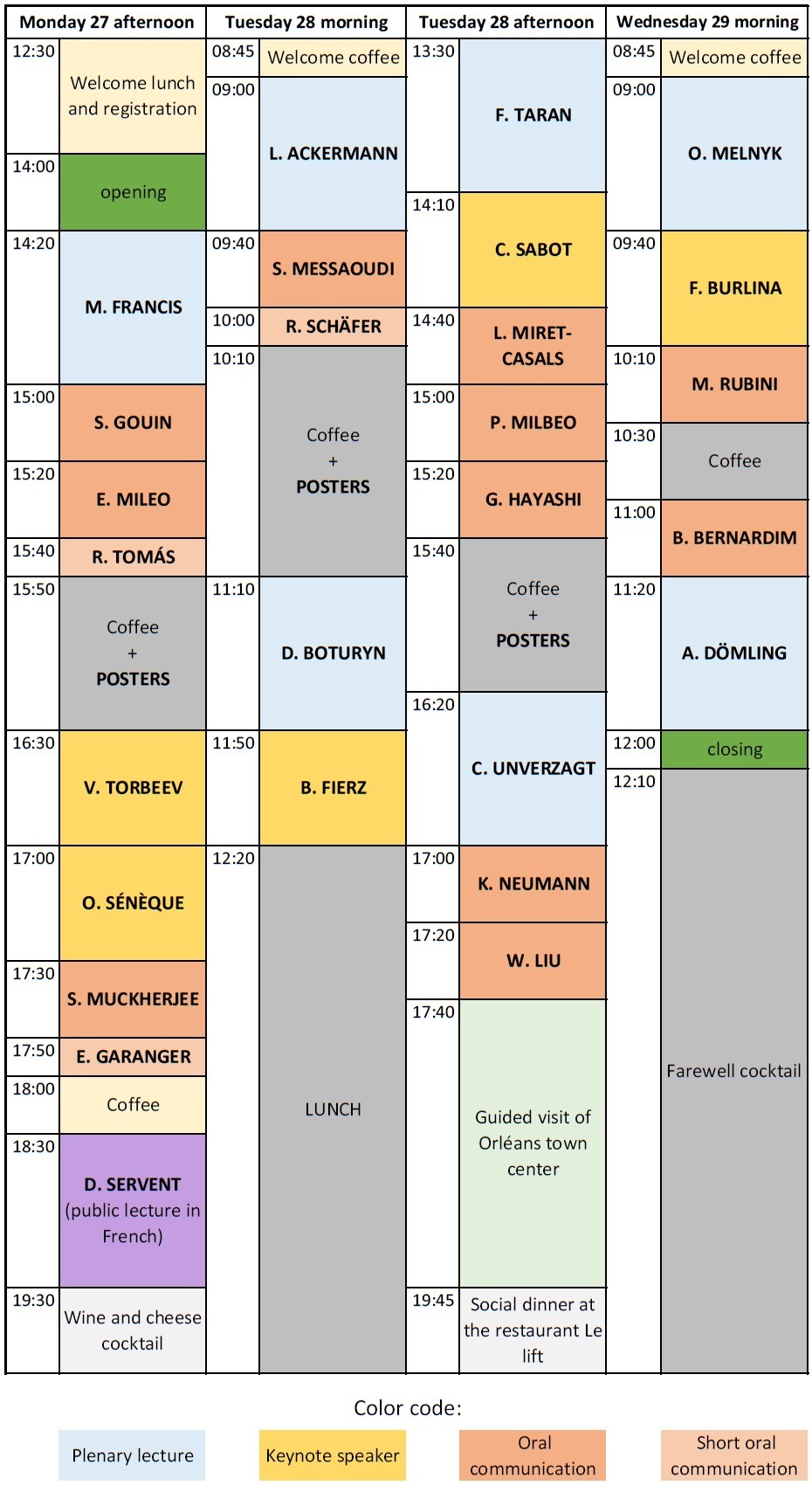
MONDAY JANUARY 27th 2020
November 22, 2019 | Brussels, Belgium
The objective of the event is to discuss the multifaceted therapeutic potential of peptides. Topics such as peptidomimetics and macrocycles, protein-protein interactions, peptide shuttles, chemical ligation and main aspects of peptide synthesis will be tackled.
The confirmed speakers are:
• Linkers for Peptide Conjugation
Prof. Fernando Albericio, University of Kwazulu-Natal, South Africa
• Synthetic Immune System Engagers – a Peptide-based Approach to Immune-oncology
Prof. Christian Becker, University of Vienna, Austria
• From Structure to Function: Peptide Recognition at G Protein-coupled Receptors
Dr Anette Kaiser, University of Leipzig, Germany
• Macrocyclization as an Enabling Tool Toward Novel Peptide Drug Candidates
Prof. Eric Marsault, University of Sherbrooke, Canada
• Targeting Receptor Complexes: A New Dimension in Drug Discovery
Prof. Kristian Strømgaard, University of Copenhagen, Denmark
• Gate2Brain, Opening the Gate to CNS Therapies
Dr Meritxell Teixido, Institute for Research in Biomedicine, Spain
All participants are invited to submit abstracts for scientific communications. Out of the submitted proposals, 3 Oral Communications will be selected. The other accepted abstracts will get the opportunity to be presented as Posters.
Submission deadline: October 10, 2019
More information is available on www.medchem.be
[foogallery id=”3560″]
Prochaines journées thématiques organisées sous les auspices du GFPP
Regarding the worldwide situation about the COVID-19, we are sorry to announce that the conference “Cell-penetrating peptides: Next generation delivery systems” will be postponed.
The new dates for the conference will be
from Monday 5th to Wednesday 7th October 2020.
Monday April 27th
| 14:00 – 14:30 | Opening |
| 14:30 – 15:15 | Sarah Jones (UK)
“Spermatozoa and Schmidtea mediterranea as alternative models for the evaluation of CPPs and bioportides: Progress towards a non-hormonal male contraceptive and generation of a novel CPP.” |
| 15:15 – 15:40 | Christopher Aisenbrey (France)
“The LAH4 system for DNA delivery: The metamorphosis of a model peptide to a medical tool” |
| 15:40 – 16:10 | Coffee break |
| 16:10 – 16:35 | Hellen O McCarthy (Northern Ireland)
“Therapeutic Nucleic Acid Vaccinations: RALA peptide-mediated gene delivery via dissolving microneedles” |
| 16:35– 18:00 | 5 short talks (10 min + 2 questions) |
| 18:15 | Poster session 1 |
| 19:00 | Welcome cocktail |
Thuesday April 28th
| 9:30 – 10:15 | Pu Chen (Canada) (to be announced) |
| 10:15 – 10:55 | Ines Neundorf (Germany)
“Towards the design and biological activity of cell-permeable peptide-drug conjugates” |
| 10:55 – 11:25 | Coffee break |
| 11:25 – 12:10 | 3 short talks (10 min + 2 questions) |
| 12:10-14:30 | Lunch |
| 14:30 – 15:15 | Meritxell Teixido (Spain)
“Blood-Brain Barrier Shuttle Peptides, From Discovery to Applications” |
| 15:15 – 15:40 | Diana Costa (Portugal)
“Exploring the potential of peptide-plasmid DNA vectors for gene delivery in cancer therapy” |
| 15:40 – 17:00 | Coffee break + Poster session 2 |
| 17:00 – 18:00 | 4 short talks (10 min + 2 questions) |
Wednesday April 29th
| 9:30 – 10:15 | Henry David Herce (USA)
“Cell-Penetrating Peptides: From molecular mechanisms to therapeutic applications” |
| 10:15 – 10:40 | Astrid Walrant (France)
“Contributions of PIP2 to Penetratin internalization biophysical and affinity photocrosslinking approaches” |
| 10:40 – 11:10 | Coffee break |
| 11:10 – 11:40 | 2 short talks (10 min + 2 questions) |
| 11:40 – 12:05 | Kaido Kurrikoff (Estonia)
“Delivery of Therapeutic Nucleic Acid with CPPs – Development Towards Mammalian Models and Applications in Biotechnology” |
| 12:05 – 12:15 | Closing remarks |
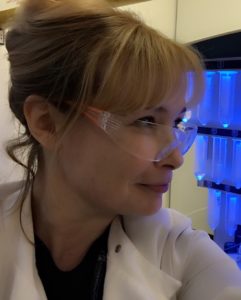 Faculty of Pharmacy University of Wolverhampton – UK
Faculty of Pharmacy University of Wolverhampton – UK
“Spermatozoa and Schmidtea mediterranea as alternative models for the evaluation of CPPs and bioportides: Progress towards a non-hormonal male contraceptive and generation of a novel CPP”
Dr Sarah Jones is a Reader in Pharmacology and a member of the Molecular Pharmacology Research Group at the University of Wolverhampton. For the past 20 years, Sarah’s research has focussed on Cell Penetrating Peptides (CPPs) and she has played a major role in the development of bioactive CPPs, bioportides. This has resulted in a paradigm shift from the use of CPPs merely as inert vectors, to their applicability and therapeutic utility as modulators of intracellular protein-protein interactions. Identification of these novel cryptic CPPs within key signalling proteins has resulted in scientific publications regarding the utility of bioportide technology in apoptosis, angiogenesis and Parkinson’s disease pathophysiology. In 2013, the Molecular Pharmacology Group reported that CPPs readily enter spermatozoa. This development precipitated the subsequent identification of bioportides capable of penetrating human sperm cells to modulate the activities of intracellular proteins that control calcium signalling, motility and fertilisation capacity and as such has laid the foundations for the development of a non-hormonal male contraceptive.
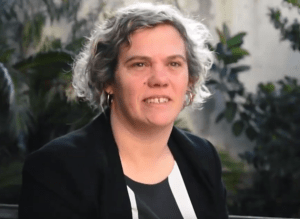 Institute for Research in Biomedicine IRB Barcelona Institute of Science and Technology – Spain
Institute for Research in Biomedicine IRB Barcelona Institute of Science and Technology – Spain
“Blood-Brain Barrier Shuttle Peptides, From Discovery to Applications”
Dr. Teixidó’s major interests are in the field of peptide synthesis and the discovery of peptide shuttles able to reach the brain and increase the transport of a wide range of cargoes including drugs, nanoparticles or diagnostic agents. With this aim, she is developing a toolbox of protease resistant BBB-shuttle peptides, mass spectrometry techniques and transport evaluation tools to be used to discover new shuttles that will improve the delivery of cargoes to the brain.
Meritxell Teixidó has published around 50 scientific articles and reviews and she has participated in 7 patents. In 2007 she won the American Peptide Idol first prize at the 20th American Peptide Symposium in Montreal, Canada. Since 2010 she is the national representative in the European Peptide Society Council and Chairperson of the next 36th EPS (European Peptide Symposium) and 12th IPS (International Peptide Symposium) (Barcelona, Sept 2020).
Dr. Teixidó has presented various oral communications in national and international scientific meetings. She has co-directed 8 doctoral theses. During her career, she has participated in several research projects founded by different national and international agencies and different patient associations. Together with Ernest Giralt she is principal investigator in the I+D project from MINECO: Peptides as therapeutic agents: modulation of protein-protein interactions and brain delivery.
In addition she has participated in various collaborations with industry (Menarini Laboratories, Farmhispania, Pharmamar, Cancer Research Technology, Zyentia Ltd., Janssen, Bioingenium, L’Oreal). More recently and through the initiatives such as Llavor, Producte, MAP-EADA and XXI Fòrum d’Inversió ACCIÓ, she has gain training and expertise in the Biotech Entrepreneur Arena.
 Institute for Technology University of Tartu – Estonia
Institute for Technology University of Tartu – Estonia
“Delivery of Therapeutic Nucleic Acid with CPPs – Development Towards Mammalian Models and Applications in Biotechnology”
Kaido Kurrikoff is a researcher at the Institute of Technology, University of Tartu, Estonia. He acquired his PhD degree (Neurosciences) at the University of Tartu, in 2009, focusing in the field of neurochemistry, psychopharmacology, and behavioral neurosciences. He did his postdoctoral training in Stockholm University, working under the supervision of Prof Ülo Langel, who is one of the founders of the field of cell penetrating peptides (CPP).
His main research interests are related to development of nucleic acid delivery systems and applications of drug delivery vectors in vivo. Thus he has worked with various models of cancer, lung diseases and trans-BBB delivery. He is also involved in development of CPP-based transfection methods, applicable in mammalian cell factories for the production of therapeutic proteins.
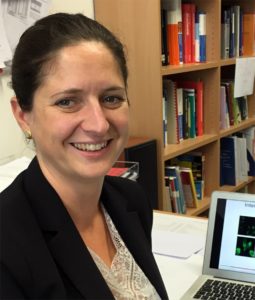 Institute for Biochemistry University of Cologne – Germany
Institute for Biochemistry University of Cologne – Germany
“Towards the design and biological activity of cell-permeable peptide-drug conjugates”
Prof. Dr. Ines Neundorf studied chemistry at the Universities of Freiburg and Leipzig. 2003 she obtained her PhD in Organic Chemistry (Leipzig University) and afterwards joined the group of Prof. A. G. Beck-Sickinger (Institute of Biochemistry, Leipzig University). 2011 she was appointed as Juniorprofessor for Biochemistry at the Institute for Biochemistry, University of Cologne, and since 2016 she is full professor at the same Institute.
Her main research interests are in the fields of membrane-active peptides, with a focus on cell-penetrating and antimicrobial peptides. Particularly, the use of chemical methods to tune cell selectivity of these peptides or to reach specific intracellular targets, as well as the synthesis and application of peptide-drug conjugates, are main topics in her group.
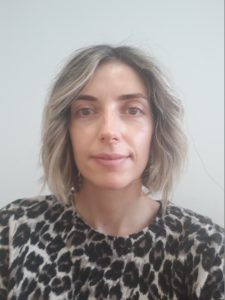 CICS-UBI Universidade Beira Interior ― Covilha – Portugal
CICS-UBI Universidade Beira Interior ― Covilha – Portugal
“Exploring the potential of peptide-plasmid DNA vectors for gene delivery in cancer therapy”
Diana Costa studied Chemistry at the Chemistry Department from the Faculty of Science and Technology, University of Coimbra, Portugal. She completed her PhD on the development of covalent DNA gels for delivery purposes, in 2009 at the University of Coimbra, Portugal. During her PhD studies, she also works at the Physical Chemistry Department from Lund University, Sweden and at the Karl-Franzens Institute from Graz University, Austria. She is currently a Principal Researcher at Health Sciences Research Centre, University of Beira Interior, Covilhã Portugal (CICS-UBI). Her research focus in the area of Biotechnology/Biomaterials Engineering, mainly on the Biomolecular and Biomaterials research for the development of novel therapeutic systems (micro, nanoparticulated or others) for targeted and controlled drug and/or gene delivery on nuclear and mitochondrial gene therapies field. In this context, currently, her research area covers the development of cell-penetrating peptide based delivery systems to operate therapeutically in a broad range of clinical applications.
 Dana-Farber Cancer Institute & Harvard Medical School Boston, Massachusetts, USA
Dana-Farber Cancer Institute & Harvard Medical School Boston, Massachusetts, USA
“Cell-Penetrating Peptides: From molecular mechanisms to therapeutic applications”
My interest centers on transforming peptides into cell-permeable in vivo active therapeutic compounds and the design of molecular tools to validate their activity in vitro and in vivo. I combine multidisciplinary theoretical and experimental methods to understand the mechanisms of uptake of cell-penetrating peptides and tackle this property to design cell-permeable therapeutic peptides. As an undergraduate I studied physics in Argentina (Institute Balseiro), obtained a PhD in physics in US (North Carolina State University), as a postdoc I trained on bioinformatics in US (Rensselaer Polytechnic Institute) and on Biology in Germany (Technische Universität Darmstadt). During this time I focused on arginine-rich cell-penetrating peptides. Currently I am at Harvard Medical School and Dana-Farber Cancer Institute developing therapeutic cell-permeable stapled peptides.
 Laboratoire des Biophysique des Membranes et RMN Université de Strasbourg ― Strasbourg- France
Laboratoire des Biophysique des Membranes et RMN Université de Strasbourg ― Strasbourg- France
“The LAH4 system for DNA delivery: The metamorphosis of a model peptide to a medical tool”
He studied physics in Freiburg im Breisgau, Brighton and Heidelberg and finished 1999 with a master degree at the German cancer research center (DKFZ) in Heidelberg. He did his PhD studies at the Max Planck Institut for Biochemistry in Martinsried and the University of Strasbourg under the supervision of Burkhard Bechinger and received 2003 the PhD degree from the University of Strasbourg. He broadened his expertise in PostDoc position at the Startup Company AC Immune, the University of Umeå and the University of Srasbourg. In 2014 he was recruted as chargé de recherche at CNRS (UMR 7177 university of Strasbourg/CNRS).
His main interst is the investigation of membrane peptides by solid state NMR and other biophysical methods like fluorescence, cirular dichroism and others. He is working on a peptide assisted enodsomal delivery system (LAH4). Is not a classical cell penetrating peptide, but it can serve a similar goal.
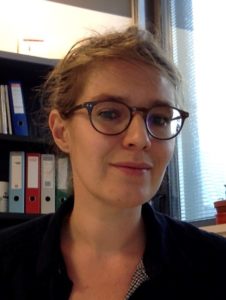 Laboratoire des Biomolécules LBM Sorbonne Université ― Paris – France
Laboratoire des Biomolécules LBM Sorbonne Université ― Paris – France
“Contributions of PIP2 to Penetratin internalization biophysical and affinity photocrosslinking approaches”
I did my PhD in Paris, at the Laboratoire des Biomolecules, Pierre et Marie Curie University, under the supervision of Isabel Alves and Sandrine Sagan, between 2008 and 2011. My PhD work focused on the analysis of peptide/membrane interactions in the context of cell penetrating peptides.
In 2012, I joined Jenny Gallop’s group at the Gurdon Institute, Cambridge University, as a postdoctoral research fellow. I worked on the regulation of actin polymerisation by lipid membranes. My work focused on the regulatory role of certain phosphoinositides, membrane curvature and curvature-inducing proteins.
In 2014, I came back to Paris and joined the Laboratoire des Biomolecules as Assistant Professor attached to the Chemistry Faculty. My research focuses on the analysis of the mechanism of action of membrane active peptides (cell penetrating, antimicrobial, viral…) at a molecular level, using biophysical approaches.
Journées thématiques passées
The symposium entitled:
Challenges and prospects in chemoselective ligations: from protein synthesis to site-specific conjugation
has been held in Orléans (France), from Monday 27th to Wednesday 29th January 2020.
This three-day international conference wass jointly organized by LE STUDIUM Loire Valley Institute for Advanced Studies and the Centre for Molecular Biophysics – CNRS Orléans. This event was held under the auspices of the French Peptide and Protein Group (GFPP) and followed three previous editions (Paris 2001, Lille 2008 and 2016) of short international meetings dedicated to chemical ligation. The official language of this meeting is English.
Recent years have seen an exponentially growing interest in chemical reactions enabling the selective modification of proteins and peptides. These advances are intimately linked to the development of methodologies for protein engineering with an atomic precision, for the generation of well-defined antibody-drug conjugates or on-demand probes to decipher biological processes. Such chemoselective reactions are also widely utilized for the total synthesis and semi-synthesis of proteins through chemical ligation of unprotected peptide fragments, an approach highly complementary to recombinant production. The chemical reactions implemented for both purposes share the same requirements: compatibility with dilute aqueous solution at physiological pH, and tolerance to the myriad functional groups commonly found in biomolecules. These remarkable features inspired the advent of bioorthogonal reactions, which can be carried out in living systems.
Sixteen invited speakers have accepted our invitation and covered the different aspects of these multidisciplinary fields, from methodology development to biological applications. In addition, contributions selected from submitted abstracts were presented as oral communication or poster.
[foogallery id=”2729″]
 Laboratory of Chemical Biology & Signal Transduction
Rockefeller University ― New York, USA
“Using Genetic Code Expansion Technology to Probe the Functionality of Cryptic Ligand-Binding Pockets in GPCRs”
Website
Laboratory of Chemical Biology & Signal Transduction
Rockefeller University ― New York, USA
“Using Genetic Code Expansion Technology to Probe the Functionality of Cryptic Ligand-Binding Pockets in GPCRs”
Website 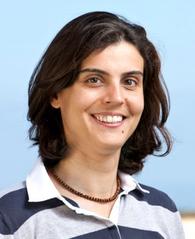 Institut for Biochemie
University of Leipzig ― Germany
“Genetically encoded chemical tools for GPCR studies”
Website
Institut for Biochemie
University of Leipzig ― Germany
“Genetically encoded chemical tools for GPCR studies”
Website  Department of Chemistry and Applied Biosciences
ETH, Zürich ― Switzerland
“The Many Faces of Proline”
Website
Department of Chemistry and Applied Biosciences
ETH, Zürich ― Switzerland
“The Many Faces of Proline”
Website Error: Contact form not found.